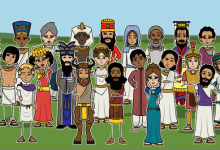Contemporary life is a complex tapestry woven from the threads of technology, culture, social dynamics, and economics. It reflects the evolving nature of human society as it adapts to rapid advancements and shifting paradigms. To understand contemporary life, it is essential to examine several interconnected aspects, including technological advancements, cultural shifts, economic transformations, and social structures.
Technological Advancements
At the heart of contemporary life is the pervasive influence of technology, which has transformed nearly every aspect of daily living. The digital revolution, characterized by the rise of the internet, smartphones, and social media, has reshaped communication, information dissemination, and personal interactions. Social media platforms such as Facebook, Twitter, and Instagram have become central to how people connect, share information, and express their identities. These platforms enable instantaneous communication across the globe, fostering a sense of global community while also giving rise to issues related to privacy, misinformation, and mental health.
The proliferation of smartphones has further revolutionized daily life, providing individuals with constant access to information, entertainment, and communication tools. The integration of artificial intelligence into these devices enhances their functionality, allowing for voice assistants, personalized recommendations, and more efficient task management. In addition, advancements in augmented reality (AR) and virtual reality (VR) are creating new experiences and possibilities in entertainment, education, and work.
The impact of technology extends beyond personal devices to broader societal changes. Automation and robotics are increasingly being employed in various industries, from manufacturing to healthcare, streamlining processes and improving efficiency. While this brings about significant economic benefits, it also raises concerns about job displacement and the need for new skill sets. The rise of big data and analytics is transforming decision-making processes in business, governance, and healthcare, offering insights that were previously unattainable.
Cultural Shifts
Contemporary life is marked by significant cultural shifts that reflect changing values, norms, and identities. Globalization has played a major role in this transformation, as cultural exchange and interaction between different societies have become more frequent and diverse. This has led to the blending of cultural practices, cuisines, and fashion, resulting in a rich tapestry of global culture that is accessible to people around the world.
At the same time, there has been a growing emphasis on individualism and personal expression. The quest for personal identity and authenticity is a prominent feature of contemporary culture, influencing everything from fashion choices to career paths. This shift is reflected in the increasing visibility of diverse identities, including those related to gender, sexuality, and ethnicity. Social movements advocating for equality and representation have gained momentum, challenging traditional norms and striving for inclusivity in various spheres of life.
The rise of digital media has also transformed cultural production and consumption. Streaming services, online content creators, and digital art platforms have democratized access to cultural content, allowing for a wider range of voices and perspectives to be heard. This has resulted in a more diverse media landscape, where niche interests and alternative viewpoints can thrive alongside mainstream offerings.
Economic Transformations
Economic changes are a crucial aspect of contemporary life, as they shape the opportunities and challenges faced by individuals and societies. The global economy has become increasingly interconnected, with trade, investment, and finance transcending national borders. This interconnectedness has led to economic growth in many regions, but it has also exacerbated inequalities and created new economic vulnerabilities.
The gig economy is a notable trend in the modern workforce, characterized by short-term, flexible employment arrangements rather than traditional, long-term jobs. This shift has been facilitated by digital platforms that connect workers with freelance opportunities, offering greater autonomy but also presenting challenges related to job security and benefits. The rise of remote work, accelerated by the COVID-19 pandemic, has further transformed the nature of work, allowing people to work from anywhere but also blurring the boundaries between professional and personal life.
Technological advancements have also impacted economic structures, with automation and artificial intelligence driving productivity gains while raising concerns about job displacement. The need for continuous adaptation and upskilling is paramount as industries evolve and new economic models emerge. Additionally, the growth of e-commerce has transformed retail, with online shopping becoming a dominant force and influencing consumer behavior and business practices.
Social Structures
Social structures in contemporary life are evolving in response to changing values, demographics, and technological advancements. Family dynamics, once characterized by traditional nuclear models, are now more diverse, encompassing various configurations such as single-parent households, blended families, and same-sex couples. These changes reflect broader societal shifts toward greater acceptance of different family forms and relationships.
Urbanization is another significant trend, with more people living in cities than in rural areas. This shift is driven by opportunities for education, employment, and cultural experiences, but it also presents challenges such as overcrowding, housing affordability, and environmental sustainability. Cities are increasingly seen as hubs of innovation and cultural exchange, but they also face issues related to inequality and access to resources.
Social issues such as mental health, substance abuse, and inequality are prominent in contemporary life. There is growing awareness and advocacy for mental health support, with efforts to reduce stigma and improve access to care. Similarly, movements addressing systemic inequality, including racial, gender, and economic disparities, are working to create more equitable societies. These issues are often intertwined with broader discussions about policy, representation, and social justice.
In summary, contemporary life is characterized by a dynamic interplay of technological, cultural, economic, and social factors. The rapid pace of change and the increasing interconnectedness of global society create both opportunities and challenges, shaping the experiences and aspirations of individuals and communities around the world. Understanding these aspects provides insight into the complexities of modern life and highlights the ongoing transformations that define our present era.

